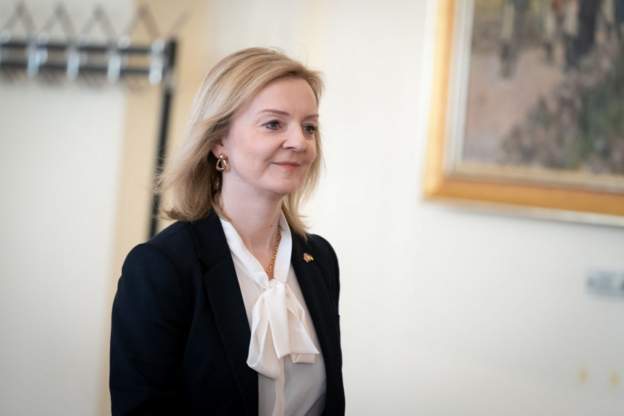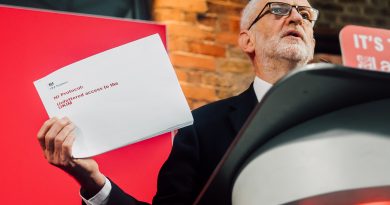Liz Truss: Daring and Determined
Andrea Gonzalez
Digital Editor
Liz Truss, the UK’s new Prime Minister, faces many economic problems and political divides. The conservative PM will have to confront Boris Johnson’s legacy, high inflation, a fraying National Health Service (NHS), and an energy crisis threatening households and businesses. More than 60 million Britons depend on Liz Truss’s ability to guide the country through these challenges. She has an enormous task ahead, especially with her party’s image in peril, and only two years to turn the tide.
Britain’s current economic predicament is exacerbated by the fact that inflation comes from two sources – tripling energy prices undermining the standard of living and wage increases requiring companies to raise their prices on products and services. Inflation is currently at 9.9 percent, and some economists predict it may reach 15 percent in the next 12 months, the highest since 1980, reports Channel 4 News. Additionally, she will be tied up by a wave of public service strikes. The NHS faces labor shortages, leaving almost 1,000 patients waiting over 12 hours in accident-and-emergency departments, reports The Economist.
Another challenge Truss must face is the Russian energy crisis. According to BBC News, Truss will cap household energy bills at £2,500 per year, which the government claims will “spark economic growth and curb inflation by as much as 5%.” Under a new “energy supply task force,” the UK will negotiate new contracts and reduce its dependency on Russian natural gas by allowing fracking where locally supported and building more nuclear power plants, reports The Washington Post. Additional fracking is not allowed under Britain’s legally binding commitment to achieve net-zero carbon emissions, which Truss supports, but the current energy situation requires the government to pivot to other energy sources to get Britons through the winter months.
Truss’s practical approach to solving a crisis must follow free-market principles and monetary policy. The PM is against the Bank of England’s decision to raise interest rates by half a point. She claims the Bank has been producing fairytale forecasts and will review its independent mandate to ensure it is on par with other central banks and can effectively control inflation, reports CNBC. The Bank’s leadership, like others, believed inflation would be transitory. However, the PM is expected to employ a massive bailout for homes and businesses by gradually cutting taxes from 25 percent to 19 percent. Although the PM cannot save the UK under these circumstances, her pragmatism could keep the island afloat until the storm passes.
Although members of Truss’s cabinet, including Chancellor of the Exchequer Kwasi Kwarteng, believe that radically shrinking the government will boost economic growth, they also understand that leaving the current situation to correct itself would put the economy in freefall. According to The Independent, the Chancellor’s upcoming mini-budget will cut taxes by £30 billion, easing the cost of living. Under Truss’s and Kwarteng’s leadership, the UK is expected to incorporate new low-regulation investment zones, remove levies on fuel bills, and backtrack business regulations to increase investment.
Liz Truss’s experience leading a political party is limited, and her list of promises will be difficult to keep, but underestimating her is a mistake that cost Rishi Sunak and his supporters the race for party leadership. During the campaign, Truss came out on top as the more convincing candidate, defending unpopular economic policies because of their potential for increasing productivity in the long term. Truss has been compared to former PM Margaret Thatcher, known for her pro-business policies and undying desire to unify the country— a spirit that the UK needs now. In her previous position as Foreign Secretary, she secured the release of two British nationals detained in Iran, something her two predecessors failed to accomplish. Despite the precarious energy situation, Truss also maintains that the UK will not accept Russia’s attempt to dismantle democracy in Ukraine.
Truss’s commitment to Britons is unflinching and undeniable. The news of Queen Elizabeth II’s passing put a temporary stop to the UK’s underlying economic and political issues. Only two days after meeting the Queen, Downing Street entered a mourning period putting all government activity on hold. However, the next few weeks will be critical in releasing policy before the party conference in October. If Truss focuses on slashing taxes and increasing aid, she will sink England’s economic credibility, but if she mobilizes all her ministers, the Bank, and unlocks capital, she will be remembered as a radical leader who delivered for her citizens.


